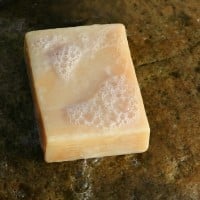Top 10 Islamic Inventions
Some of you may be surprised that some of the daily stuff we use is rooted from Islamic origins. Much like the west, the Islamic World had a plethora of contributions - many of which had a huge impact in society which you can see today. Many of these said inventions have been created during the Islamic Golden Age - a time which spurred medical, philosophical, scientific, and other advancements to be made starting in the 8th century and ending in the mid-13th century. Later on, these inventions would proliferate to the west as well as the rest of the world. This list shows some of their most significant inventions.Did you know that the everyday numbers we use comes from Arabic speakers residing in North Africa in the 10th century? From the introduction of the numbers from Codex Vigilanus, the use of Arabic numerals slowly began to spread in Europe at that time. When the printing press was invented, the concept especially diffused to many parts of Europe centuries later starting at the 15th century, which had a later major impact on the rest of the world.

Ah yes, one of the most feared subjects in school also happens to come from the Islamic world. Even the word itself has Arabic roots. While the Babylonians (the root of algebra), Egyptians, and the Greeks were the trailblazers to making algebraic concepts at first, along with other civilizations, Muslims contributed many mathematical concepts as much as these aforementioned civilizations. In the 8th century, Islam saw an enlightenment of mathematics - most importantly algebra. Muhammad Ibn Musa al-Khwarizmi was the pioneer of algebra - even being commonly referred as the "father of algebra". Most of his notable inventions include the solution of solving linear, and quadratic equations via completing the square, as well as like terms, reducing, and the cancelling out method. Though that's only scratching the surface. He was notably the first person to treat algebra as a discipline thanks to his written book "The Compendious Book on Calculation by Completion and Balancing", where most of his material comes from.
The Arabians were also very innovative in inventing surgical tools and methods, most of which have a massive impact in the medieval world to the renaissance within the span of several centuries. One prime example is Al-Zahrawi who is known as "the father of modern surgery". Along with inventing medical tools, he composed his magnum opus "Kitab Al-Tasrif" or also called "The Method of Medicine" which covers a huge amount of information regarding sicknesses, medicine, instruments, surgery, and other health-related topics - some of which are still being used in the present day.
Healthcare in the Islamic medieval ages had significant care of the people regardless of their financial status or their background. In fact, healthcare was entirely free for everyone - including foreigners due to their religion and traditions. The hospitals which existed in the medieval world were called bimaristans, which would admit sick patients in until they are fully recovered. There were also treatments for the mentally ill - even including music therapy. These hospitals also functioned as institutions which provided the opportunity for medical students to further pursue their knowledge. One of the hospitals which resembles much of the modern hospital today is the Al-Fustat Hospital, which was built in 872 in Cairo. This was one of the very first hospitals to treat the mentally ill with care
Its exact origins remain obscure, though it's mostly believed to be invented by Indians or the Chinese earlier than the Islamic world, though some evidence indicates that the spinning wheel was already recognized in the Islamic world in the 11th century. the spinning wheel is one of the pioneer inventions that would take a large part of the Industrial Revolution. It was distributed in Europe in the next centuries and was especially important to producing yarn - which contributed much to the textile industry during the Industrial Revolution. In fact, the spinning wheel would play a large role to developing the spinning jenny, and even the printer due to paper being cheap.

Ironically, coffee was considered a sin to drink among many Christians knowing the beverage came from the infidels, yet there's a reason why Arabic coffee usually tastes so good - even the Pope Clement VIII took a sip of the coffee then decided otherwise despite the pressure to ban the drink. From the man himself, he said, "This Satan's drink is so delicious that it would be a pity to let the infidels have exclusive use of it", as he blessed the beverage. Thereafter, coffee began to be popular throughout Europe and eventually throughout the whole world.
Although Ethiopia had tales regarding coffee centuries before, the evidence of drinking coffee traces back to Yemen in southern Arabia. While it's not part of the Islamic Golden Period this was discovered relatively later in the 15th century, and in 1600 coffee was introduced to Italy, and then to the rest of the world. And surprisingly, how we prepare coffee is quite similar to what the Yemen citizens did centuries ago.
Some of you might be in disbelief considering most of these inventions come from the medieval period, but this pinhole camera was first invented in the 11th century. When the "camera obscura" phenomenon was brought up by the mathematician and physicist Ibn al-Haytham, many inventions and experiments related to the phenomenon followed along.

Nope it wasn't Schweppes that was the first to sell soft drinks in history, but it was the Middle Easterns who were among the first to produce and sell soft drinks. The Sharbat was one of the most popular drinks in that time during the medieval period. Believed to be made from Iran, it's made with a variety of fruit - mixed with honey and syrup. This was way before the marketing of soda drinks became popular worldwide.
This everyday invention (also a convex lens) traces back to the 10th century in the Book of Optics, written by the same inventor of the pinhole camera. It may not be the most useful, but the magnifying glass was actually the predecessor of the eyeglasses in Italy in the 13th century when the book was translated and distributed throughout Europe later in the 12th century.

Definitely one of the inventions we use most Islamic or otherwise.
One of the lost inventions in the Islamic World, Damascus Steel was a special kind of material that's distinguishable from its wavy look. It's known for its strength and durability stronger than most ordinary steel back in the medieval period. Production started in the 8th century but ended in the 19th century, and after its discontinuation many people tried to recreate the steel but to no success. it still remains a notable legend to this day.